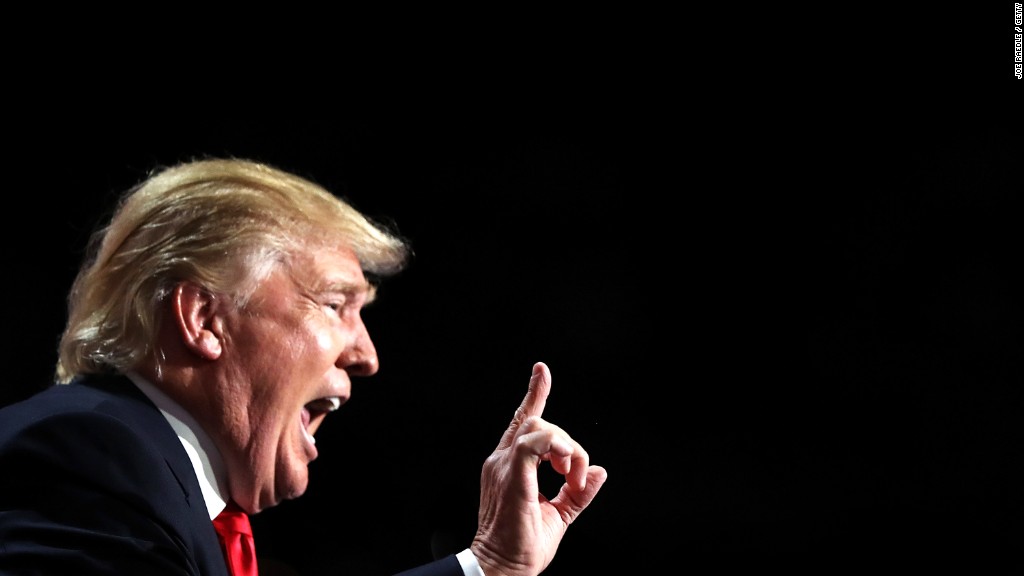
In April, Donald Trump told the Washington Post he could wipe out America's $19 trillion debt in 8 years.
On Sunday, an economic adviser for the Trump campaign acknowledged it's not doable.
"I think it would be hard to eliminate it," said David Malpass, speaking on CNN Sunday night. "I think we just have too much debt for it to go away in a short time period."
When asked about the change in position, Malpass responded: "That was a long time ago and it was a very hard-fought primary campaign."
Malpass said it was still important to get serious about the debt: "The debt has been going up at a very rapid rate over the last 8 years," he said. "That's something that's got to stop."
Trump is set to unveil an update to his economic plan on Monday in Detroit.
His current tax and spending proposals would greatly add to -- not subtract from -- the national debt: Federal debt would rise by an estimated $11.5 trillion in the first decade alone, according to an analysis by the Committee for a Responsible Budget.
The biggest reason: Trump has proposed massive tax cuts.
Supporters of the plan have said that the analysis does not take into account the economic growth that comes from cutting taxes. But even when CRFB makes allowances for potential growth, it concludes his tax plan would result in a steep loss of tax revenue.
Trump's spending plans would also add to the debt.
Trump has proposed spending reductions that amount to an estimated $650 billion over a decade, according to CRFB. But that doesn't account for his latest promise to spend twice as much as Hillary Clinton on infrastructure spending. In terms of the biggest drivers of federal spending going forward - Social Security and Medicare - Trump has said he'd make no changes.
Trump's revised economic plan is expected to dial back some of his tax cuts to make them less costly.


